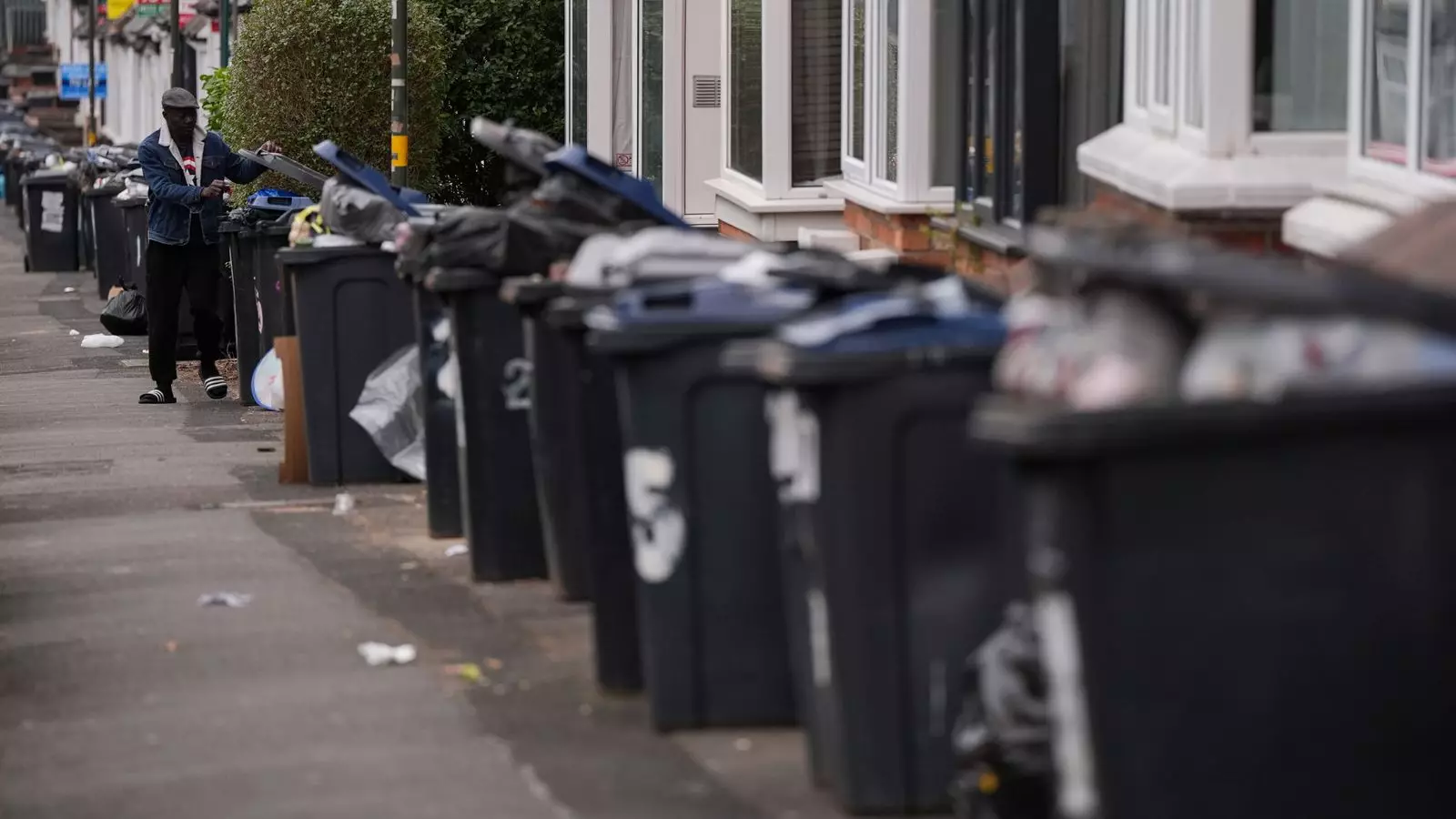In a city that once prided itself on its community values and robust public services, Birmingham now finds itself embroiled in a crisis that lays bare the fragile underpinnings of local governance. The ongoing bin strike, fueled by financial disparities and poor management, has snowballed into a situation where approximately 17,000 tonnes of refuse languish in the streets. The Birmingham City Council has been forced to declare a major incident, not merely as a reactionary measure but as an acknowledgment that the health and safety of its residents are at risk. The irony is painfully apparent: a city that has historically championed social welfare is now struggling to maintain basic services for its most vulnerable citizens.
The Human Cost of Strikes and Budget Cuts
The Unite union has been waging an all-out strike since March 11, fighting against pay cuts that are estimated to render some waste collection staff around £8,000 poorer. This is not merely a dispute over wages; it encapsulates a larger narrative of systemic neglect and the erosion of workers’ rights in the face of budgetary constraints. Birmingham’s decision to increase the number of street-cleansing vehicles may offer a temporary solution, but let’s not kid ourselves: this is a band-aid on a gaping wound. The striking workers are not just fighting for their livelihood; they are standing up for dignity in their work, in a city that seems to place profit over people.
Holding picket lines is often romanticized as a form of noble resistance, yet, as emphasized by Council leader John Cotton, this strike has drawn a line in the sand. While I fundamentally respect the right to protest, we must recognize that lawful action is crucial in striking a balance between advocacy and chaos. The distress experienced by residents is palpable—flouting the law in the name of solidarity only serves to undermine the very struggle that workers are fighting for.
Voices from Beyond the Picket Line
Local Government Minister Jim McMahon’s comments cut straight to the bone: the ongoing strike is an “imminent public health risk,” particularly for the city’s marginalized communities. These statements are not empty platitudes; they highlight the grim reality that budget cuts have compounded with inadequate responses from authorities. When urban governance collapses to this extent, it reveals an uncomfortable truth: making local services efficient while keeping them affordable is a tightrope walk that many councils are ill-equipped to navigate.
The government’s pledge to provide support should not only be generous but also accountable. If Birmingham City Council’s restructuring aims to create a “modern, sustainable, and consistently reliable waste collection service,” then it begs the question: at what cost? The rhetoric of efficiency often disguises an underlying motive to diminish workers’ rights, while touting service improvements that fail to materialize in the eyes of the community. Local leaders should not only ask for assistance but should insist it be accompanied by substantive changes in budget allocations—ensuring that economic constraints do not morph into social neglect.
The Path Forward: Reimagining Governance
It is paramount that both the union and the council engage in a sincere dialogue, rather than just perfunctory negotiations that waste time and energy. The current predicament presents an opportunity for Birmingham to rethink the dynamics of management and labor relations. Community-oriented approaches in governance should be prioritized, where the perspectives of workers are not merely acknowledged, but deeply integrated into decision-making processes.
The stakes couldn’t be higher: allowing the situation to deteriorate further would signal to other cities that unions are powerless against budgetary neglect, paving the way for more draconian measures against public workers. More importantly, it raises existential questions about what kind of community we wish to create. Are we willing to stand with those who keep our cities clean and safe, or will we continue to enable the bureaucratic machinery that treats them as mere financial liabilities? The future of cities like Birmingham hangs in this delicate balance—how we respond now and in the months to come will define the social fabric of our urban life.

Leave a Reply